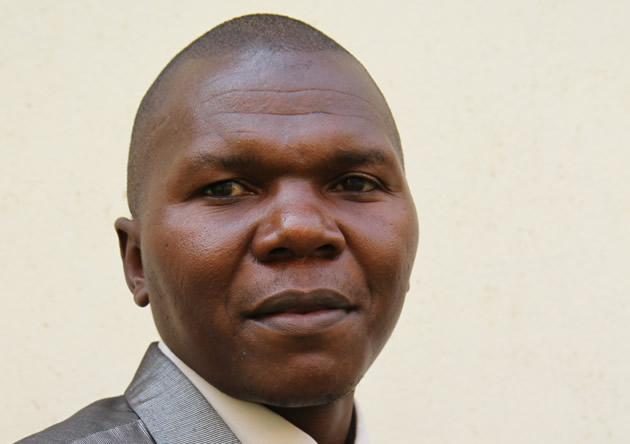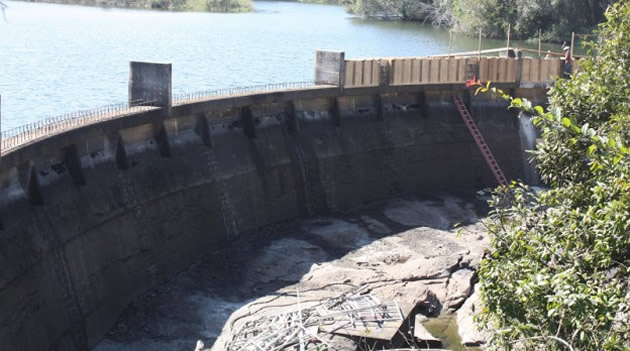MP: Constituency’s ‘Father Christmas’

Loyd Gumbo Mr Speaker Sir
I cannot imagine people in a constituency voting for someone to be a Member of Parliament so that they can just take their voices to Parliament, make laws and hold the executive to account.
This is of course as prescribed in the laws, but is that good enough to satisfy the needs and meet the expectations of the electorate?
Mr Speaker Sir, the thrust of this week’s instalment is the alleged “vote-buying” and MPs’ developmental roles in their constituencies.
In all fairness, the constituents out there do not even give a fuss about law-making and holding the Executive to account because they have no idea that’s the main mandate of the Legislature.
The fact that the constituents go to their MP for monetary help when their children or spouses are sick, when they do not have food on the table and when public transporters shun their area because of dilapidated roads, just goes to show that as far as the electorate are concerned their parliamentary representative is expected to be some species of Father Christmas.
Ordinary constituents, especially in rural communities, believe MPs must initiate development in their areas such as dam construction, roads rehabilitation and projects that should enhance their livelihood.
Besides, they would have been promised the same during the run-up to the polls.
The constituents expect something tangible from their MPs and failure to satisfy that expectation has resulted in high MP turnover in some constituencies with every election.
It is a fact that MPs’ main mandate is law-making, representing their constituencies and oversight. But if one were to exclusively focus on the three, would they make it at the next election?
One could imagine a villager exclaiming: “Do we eat laws?” when one tries to explain their mandate of legislators.
While MPs have constitutionally-spelt responsibilities as outlined above, the electorate want more than just that.
Their primary expectation is to have an MP who brings development to their area regardless of how they perform in the other responsibilities.
We have to accept that Government is unable to implement developmental projects at the moment due to economic challenges facing the country.
As a result, rural communities are usually the victims.
The expectation by the electorate is that MPs must fill that developmental gap regardless of their political party.
What is clear is that the constituents believe an MP must answer all the problems they are facing.
They want to see their roads graded to make their areas accessible in the case of rural constituencies where they have gravel roads. They also want MPs to provide food when they are in need.
People do not just vote for people so they can make laws, hold the Executive to account and to represent them in Parliament.
What they want are developmental projects that are spearheaded by their representatives before and after the elections.
Since Treasury is unable to avail funds for developmental projects in constituencies through the Constituency Development Fund, it would therefore be prudent for MPs to source developmental funds for their constituencies elsewhere.
Given the constrained fiscal space, MPs are unlikely to receive CDF before the 2018 harmonised elections, a development that could see a number of them failing to sink a single borehole.
MPs must therefore establish synergies with organisations that can bring development in their constituencies since their salaries are meagre.
On another note, our laws bar something called vote-buying, itself a difficult thing to define.
A simple reading of the offence is that if anyone initiates developmental projects in a constituency where they are contesting, it’s then classified as vote-buying.
For starters, that law portrays the electorate as zombies with no cognitive capacity to make independent decisions about who to vote for.
What the electorate want is development and if someone comes up with developmental projects why should they be barred under the pretext that they are buying votes?
Surely that is an archaic piece of legislation by any standard.
A lot of noise was made when Professor Jonathan Moyo spearheaded a number of development projects in his constituency ahead of the June 10, 2015 by-elections where he was contesting.
People went haywire arguing that he was vote-buying.
But the fact of the matter is that people of Tsholotsho North, who have had to walk long distances to fetch water, now have boreholes in their vicinity.
While some people may argue that was vote-buying the fact of the matter is that it is what people expect of their MPs.
Mr Speaker Sir, we have to accept that politics has become a commercial enterprise which is the reason those with resources easily lure voters because they are able to come up with projects that appeal to the electorate.
People should stop begrudging those with resources that they use to develop their constituencies, if anything they should consider developing their constituencies too.
It is no longer enough for MPs to tell their constituents that their responsibility is law-making, holding the Executive to account and representing them in parliament. It goes without saying that some of the development that has happened in some rural constituencies was initiated by MPs.
Although some MPs may argue that infrastructural development in constituencies does not fall under their purview and others make noise about alleged vote-buying, there is so much for academics to demystify the two.








Comments